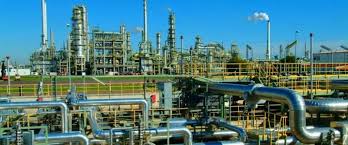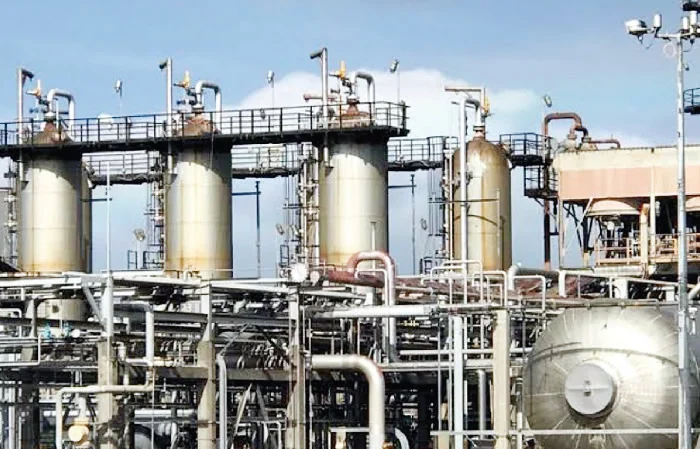By Alexander Adejoh
Mixed reactions have continued to trail the move by the federal government to rehabilitate the Port-Harcourt Refining Company (PHRC).
The Federal Executive Council (FEC) recently approved the sum of $1.5 billion for the immediate rehabilitation of the Port Harcourt refinery.
This followed a memo by the Minister of State for Petroleum Resources, Timipre Sylva, on its rehabilitation, which was presented to FEC and its subsequent approval on March 17, 2021.
Indeed, Nigeria’s refineries have suffered years of neglect.
In particular, the PHRC has experienced decline in performance over the past two decades due to delays in conducting mandatory Turn Around Maintenance (TAM).
The last time a TAM was conducted on the Refinery was 21 years ago (2000)! Isn’t it time the nation’s refineries are brought back to their optimal capacities?
Some critics have argued that it is more economical to build a new refinery than, “just waste $1.5 billion” to rehabilitate the PHRC, which holds 210,000bpd out of Nigeria’s 445,000bpd refining capacity.
On the contrary, a cursory look at brand new refineries built across the world reveals that building a refinery of similar capacity like PHRC is estimated at over $6 billion depending on a number of technical and non-technical factors. For example, $10 billion was spent on building Aramco Oil Refinery (250,000-300,000 bpd) in Pakistan, $12 billion was spent on building Abrue Lima Project (230,000) in Brazil; while $27 billion was spent on building Pengerang Refinery and Petrochemical Integrated Development, RAPID (300,000 b/d + 3 mtpa) naptha steam cracker) in Indonesia. In Nigeria, $19 billion has been spent so far on Dangote Refinery (650,000bpd) prior to commissioning and start-up of the plant.
It is interesting to note that despite the abundance of hydrocarbon resources, Nigeria is, sadly, the only oil producer in the world that does not refine petroleum products. Instead, the country relies heavily on importation for most of its petrol needs locally. This is not a good record to be proud of. Armchair critics also come up with a shallow argument that it is better to sell off these refineries since they can no longer meet up the nation’s refining needs. Which country sells off its strategic national assets, such as the refineries, to the highest bidder? Armchair critics usually think a mere mention of TAM means another round of business as usual, where resources are drained with nothing to show for it at the end of the day.
While some of these arguments are genuine, it is instructive to note that this TAM is different because it will enable the replacement of aging / obsolete equipment as well as ensure that refinery operates at a minimum of 90% capacity utilization. On the flipside, Nigerians will benefit immensely as PMS and other petroleum products will be become available locally, jobs will be created from the value chain of activities and the current strain on Forex for importation of products will reduce. In addition, interested parties who benefited from the age-long importation largesse and have fleeced the nation dry will potentially be out of business.
This is the same for critics of the President Muhammadu Buhari administration. These detractors probably forgot that this was an administration that, from its inception, made clear its intention to bring back the refineries to their optimal capacities. The Buhari Presidency also threw its full weight and support behind the NNPC to execute the project.
It is worthy to note that for African Export-Import Bank (Afreximbank), which is the reliable lender for the project to have raised $1billion towards the initiative, it goes to show that the multilateral institution understands how crucial the project is. In the same vein, the federal government will raise the sum of $550 million. Clearly, a credible and capable lender like Afreximbank would never agree to put such huge amount of money where there will be no value. Also, the right governance structures have been instituted around the project implementation to ensure success. Similarly, Tecnimont SpA, the Original Refinery Builder (ORB) which is also the Engineering, Procurement, Construction, Installation and Commissioning (EPCIC) Contractor, is globally reputable and capable, with requisite experience of similar jobs across the globe.
There are still a number of other genuine reasons why the current refineries rehabilitation project is different.
Firstly, Project implementation governance structure includes key independent external stakeholders: Ministry of Finance, NEITI, ICRC, the two labour unions in the oil and gas industry – PENGASSAN and NUPENG.
Secondly, it involves significant replacement of key equipment within the refinery’s major units and components.
Thirdly, it is funded through part-loan and part-government, with the financiers actively monitoring the execution of the project. KBR and NETCO are also acting as NNPC Engineers who will be supervising the EPC contract to ensure the project is delivered in line on schedule, within budget and at the right quality.
Sylva has urged Nigerians who are opposed to the project to hold him accountable for every dollar that will be spent on rehabilitating the refinery.
“They (Nigerians) can hold me accountable and hold this government accountable for every dollar, every cent on this refinery and ensure that we deliver a refinery that works,” he said.
Sylva has also explained that the rehabilitation will take 18 months and the first phase will get the refinery to 90 percent operational capacity, stressing that President Muhammadu Buhari was bent on leaving a legacy including making sure that the refineries are working.
“It is not going to be all debts, we are not going to borrow all the monies that are going into the rehabilitation”.
Furthermore, the minister explained that the project would be in three phases, adding that the first phase was going to be within the tenure of this administration.
“You should hold us. It is 18 months and we are going to take the refinery to 90 percent of its main capacity and that is what you should hold us to,” he posited.
While defending the project, the former governor of Bayelsa state noted that the federal government also plans to rehabilitate other refineries in the country, explaining that the move is not a waste of funds as believed by many Nigerians.
According to him, the refinery will benefit Nigerians and be commercially-viable to return profits for the government and satisfy the domestic needs of the country, especially in addition to the Dangote refinery.
“This rehabilitation will bring a lot of gains for Nigerians. First, we are gaining from savings in the foreign exchange end, savings from importation of premium motor spirit (PMS); and we will gain from the operations of the refineries itself,” he noted.
The minister also debunked insinuations that the rehabilitation could have taken less than N500 million, saying that the rehabilitation of the refinery was being handled by professionals.
It is also expected to result to job creation across the value chain (crude supply, operating and maintaining the refinery, product supply etc) including several third party contractors that will supply outsourced services or goods.
The refined products are also feedstock for small scale local manufacturing. The most significant and visible benefit is energy security of the country. Imagine if COVID 19 lock down became global and we couldn’t import, it would have been a disaster as there was no capacity to refine crude in country and as such, there would have been no products.
A group like the Ijaw Youths Council (IYC) Worldwide, which understands the importance of this laudable move has described it as a signal that the federal government has woken up from its slumber.
The IYC President, Peter Igbifa, said though reviving and optimising the refinery was long overdue, it was better late than never.
Igbifa, who described the move as a welcome development said it would create employment for the teeming jobless youths in the Niger Delta region and increase the country’s refining capacity.
The IYC boss also expressed optimism that the project when completed would reduce youth restiveness and criminality in the region. He advised the federal government not to play politics with the project.
Igbifa called on the government to swing into action immediately by releasing money immediately to back up its approval.
Igbifa said: “This should not end in funds approval, money should be released as and when due. We don’t want to hear the usual excuse that the project is being delayed for lack of funds. We listened carefully as the Minister of State for Petroleum, Chief Timipre Sylva, reeled out the timeline for the project and we are expecting the rehabilitation to follow the timeline.
“As a council, which fights for the interest of Ijaw youths and other youths in the Niger Delta, we will be constituting an action committee to work closely with the ministry of petroleum and the contractors that will be in charge of the rehabilitation project. We will monitor the execution of this project from the beginning to the end and if we notice any foul play, we will surely raise the alarm.”
Igbifa said it smacked of unseriousness and irresponsibility for an oil-producing country like Nigeria to be selling crude oil and importing refined products, adding that the move to rehabilitate the Port Harcourt refinery would gradually bring an end to the economic disaster.
On his part, an Environmental Justice Activist, Mr Fyneface Dumnamene Fyneface, welcomed the planned rehabilitation of the Port Harcourt refinery, saying it will create jobs and also curb incessant fuel hike when completed.
Fyneface also urged the government to consider funding artisanal refiners to own modular refineries, in order to contribute to energy sufficiency in the country.
“The approval, coming at a time that Nigerians are grumbling over incessant hike in fuel price and energy crisis would go a long way to address these issues when completed. During the rehabilitation, jobs will be created for youths and experts across board,” he added.
Therefore, the federal government must be given all the support to see that the Port Harcourt Refinery is revived and becomes operational once more in order to save the government its scarce forex revenue as well as create the much-needed jobs.
Adejoh writes from Lokoja, Kogi State.
























Leave a comment